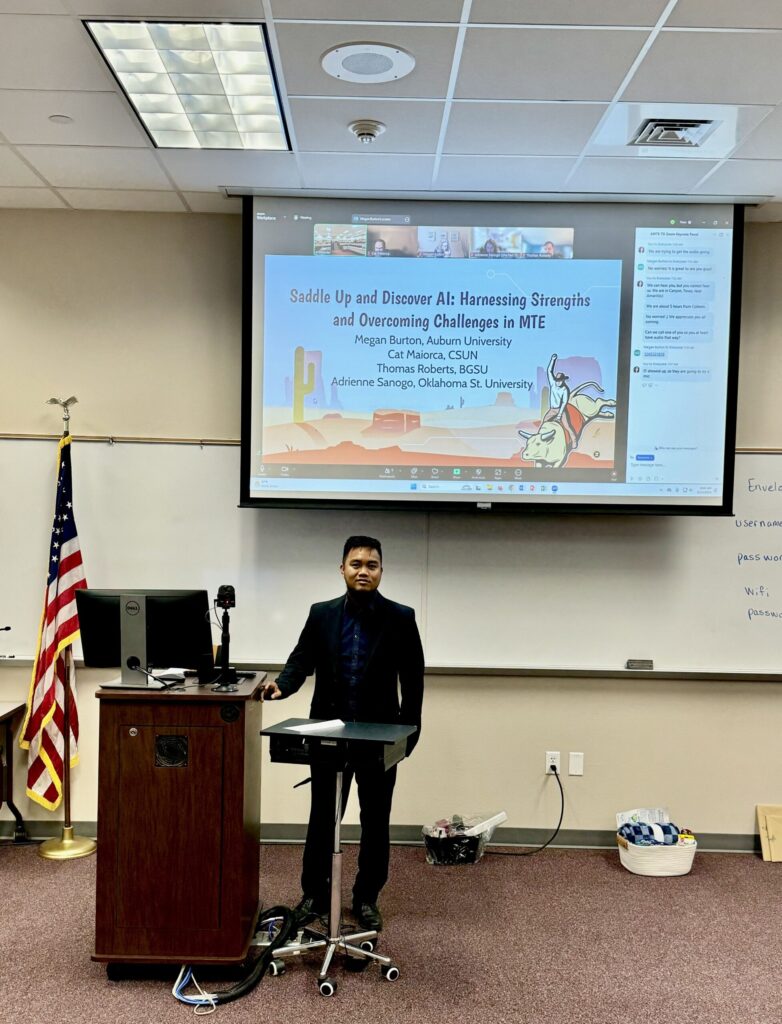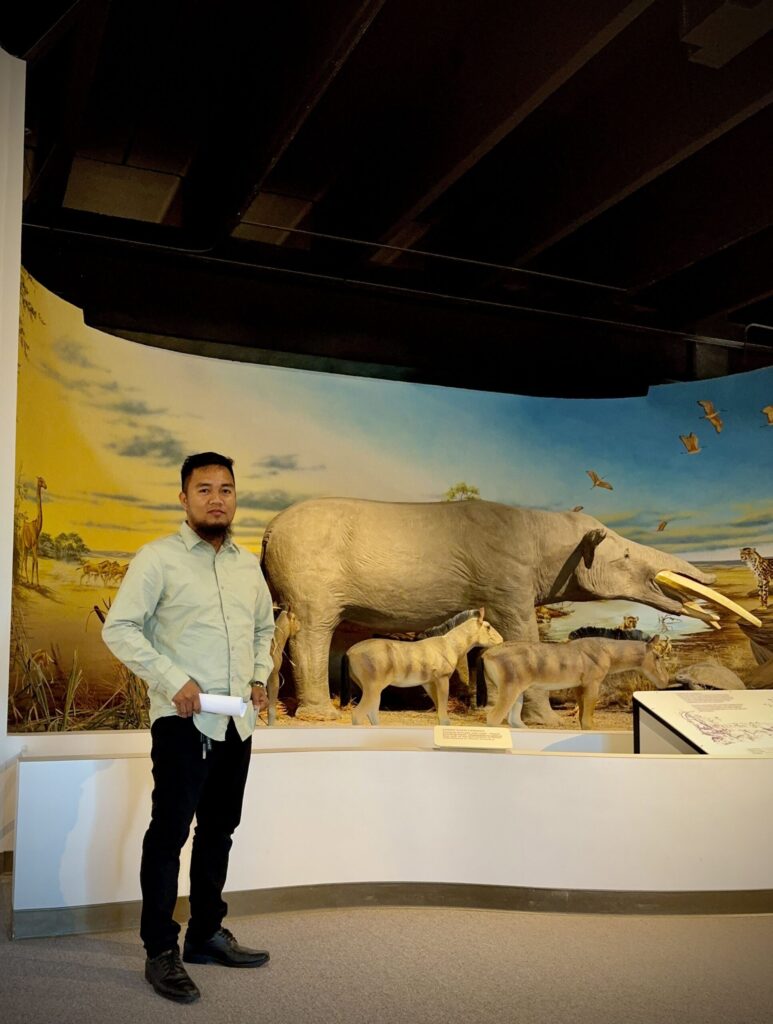As debates over how best to transform underperforming schools continue across the United States, few voices in the conversation combine academic rigor, field-tested strategies, and international perspective as compellingly as Dr. Felix Diano Jr. An award-winning educator and researcher with over 50 peer-reviewed publications to his name, Diano has quietly become a force behind some of the most promising school reform models taking hold in Title I districts across the country.
Originally trained in the Philippines, where he served as principal at the University of the Visayas Basic Education Department, Dr. Diano relocated to Texas, three years ago and has since become a central figure in U.S. educational leadership circles. Today, his data-driven models for instructional supervision, distributed governance, and faculty development are gaining national traction—praised by education experts, implemented by school districts, and cited in professional research outlets.
From Cebu to Texas: A Scholar-Practitioner’s Path
Dr. Diano’s professional foundation was shaped early on by his work in Southeast Asia, where he led multi-level faculty initiatives and curriculum design at one of the region’s oldest academic institutions. “What struck me about Felix’s leadership was how rooted it was in practice—not theory,” recalls Dr. Brian A. Vasquez, former Research director of the University of the Visayas. “He brought empirical insight to daily challenges. You could feel the shift in teaching culture almost immediately.”
After earning his Ph.D. in Education, Diano transitioned into dual roles as a full-time educator and prolific researcher. His early work in the U.S. focused on integrating formative assessment loops, teacher-led professional learning communities (PLCs), and performance data dashboards for administrative decision-making. These efforts soon garnered attention, not just from local school boards, but from academic reviewers and nonprofit think tanks committed to equity-based school reform.

Peer Recognition and Policy Impact
In 2023, Diano’s longitudinal study on distributed leadership and academic gains in economically disadvantaged schools was published in the Science and Education Journal” and later referenced by the National Council of Supervisors of Mathematics (NCSM). “Felix Diano is emerging as a rare voice who understands both what motivates teachers and how systems must evolve to support them,” says Dr. Erin Blanchard, Associate Dean at Texas Tech University’s College of Education.
Diano currently serves on the editorial boards of Cogent Education and the Journal of Mathematics Teacher Education, where he is responsible for evaluating global research in instructional leadership. “His reviews are rigorous, but always grounded in improving classroom outcomes,” notes Professor Allan McCormick, Editor-in-Chief of Cogent Education. “He bridges academia and implementation in a way that’s still far too rare.”
A Playbook for Change: Tools, Results, and Replication
Unlike many in his field, Dr. Diano doesn’t simply publish research—he operationalizes it. His comprehensive leadership toolkit includes evaluation rubrics, district-wide instructional alignment models, and faculty growth frameworks now in active use across districts in Texas, Illinois, Georgia, and most recently, New Mexico. “We adopted Dr. Diano’s leadership tools during our 2022–2024 strategic turnaround, and the gains were tangible,” says Superintendent Lisa Tran of Central Texas ISD. “Graduation rates jumped by over 11%, and disciplinary actions declined. It wasn’t just theory—it was transformation.”
Much of this success stems from Diano’s emphasis on culturally responsive pedagogy, collaborative planning cycles, and the integration of technology not as an end in itself, but as a means to amplify sound instructional design. His innovative use of platforms such as Padlet, Google Classroom, and Desmos—augmented by dynamic spreadsheets and feedback dashboards—has made him a leading voice in what the U.S. Department of Education’s Equity Action Plan describes as “responsive instructional ecosystems.”
Endorsements from National Networks
In 2024, Dr. Diano was named an International Education Fellow by the Association for Supervision and Curriculum Development (ASCD), and later that year, he was invited to co-present with RAND Corporation analysts during their national symposium on relational trust and teacher retention. “What sets Felix apart is his commitment to coherence,” said RAND senior researcher Lucy Foster. “His models don’t exist in isolation—they fit together in a way that’s elegant, practical, and scalable.”
Additionally, the National Implementation Research Network (NIRN) cited Diano’s field-tested modules as “aligned with high-fidelity implementation practices,” particularly in their capacity to foster shared accountability and sustained outcomes in Title I contexts. His tools now form the basis of two principal training pilots supported by regional education service centers across Texas and are being considered for broader adoption under a Department of Education grant.
A Leadership Model for a New Era
At the core of Dr. Diano’s work is a deceptively simple premise: effective leadership grows from relationships, reflection, and responsiveness. “You cannot reform institutions without reforming how we value and support the people within them,” he often says. His leadership philosophy—developmental, not directive—prioritizes trust-building and co-ownership of outcomes over top-down control.
This ethos resonates in today’s environment, where burnout, inequity, and distrust challenge many school systems. “Dr. Diano helped us see that leadership isn’t about charisma or compliance—it’s about systems that elevate people,” said Principal Kendra Mays of El Paso ISD, whose school implemented his PLC structure in 2023. “Our entire school culture changed.”
Building a Replicable Model for Educational Reform
What distinguishes Dr. Diano is his unwavering commitment to operationalizing research into actionable frameworks. His portfolio of practical tools includes immersive training modules for aspiring principals, data-informed needs assessment instruments for district administrators, and curated professional learning communities (PLCs) that facilitate curricular alignment and strategic leadership.
“Theoretical models hold value, but school leaders require functional blueprints,” Diano affirms. “I design resources that are rigorously researched yet pragmatically adaptable—tools that catalyze measurable change, not superficial compliance.”
A central component of his model is the strategic use of educational technology. Dr. Diano employs platforms such as Google Classroom, Desmos, and Padlet to cultivate interactive, differentiated instruction. “Digital tools aren’t a replacement for sound pedagogy—they are amplifiers of it. When applied thoughtfully, they enhance responsiveness and deepen student engagement,” he explains. To further support instructional quality, he has developed dynamic spreadsheets and custom analytics dashboards that offer real-time performance insights. These technologies also underpin teacher development systems that provide feedback loops and targeted coaching.
This commitment to technology-enhanced, student-focused practice has earned Dr. Diano editorial appointments at journals including Cogent Social Sciences and the Journal of Mathematics Teacher Education. These roles reflect his dedication to ensuring academic research remains anchored in pedagogical outcomes that matter most.
His initiatives exemplify core principles of implementation science, such as fidelity, ongoing coaching, and iterative feedback—benchmarks endorsed by the National Implementation Research Network (NIRN, 2020). In Texas, his work with Title I schools focuses on scaling math interventions and digital learning strategies. He also leads professional development workshops on culturally responsive pedagogy, aligning his work with the U.S. Department of Education’s 2022 Equity Action Plan.

A Vision Rooted in Community Empowerment
Dr. Diano’s leadership ethos centers on collective efficacy. He characterizes his philosophy as “developmental, not directive,” emphasizing the cultivation of shared accountability and trust among educators and stakeholders. “Leadership should never be about control. It should be about creating the conditions where people can grow together,” he asserts.
This people-centered approach aligns with findings from the RAND Corporation, which identifies relational trust as a cornerstone of successful educational reform (Foster, 2019).
Dr. Diano continues to advocate for reform models that are both context-sensitive and globally informed. “Change doesn’t begin with new policies—it begins with how we support the people who enact them,” he says. As a result, his frameworks are now being adopted by districts beyond Texas to guide principal training, instructional alignment, and leadership assessment.
Conclusion
Dr. Felix Diano is not a household name—yet. But among the growing number of superintendents, principals, and scholars looking for sustainable models of leadership, he has become a sought-after mind and a steady hand. His journey—from a university principal in Cebu to an architect of reform frameworks reshaping American schools—stands as a powerful reminder of how cross-cultural expertise, grounded research, and humble leadership can come together to redefine what’s possible in public education.
References:
- UNESCO. (2017). Global Education Monitoring Report. https://unesdoc.unesco.org/
- Turnbull, B. J., et al. (2016). Building a Stronger Principalship. The Wallace Foundation. https://www.wallacefoundation.org
- Kraft, M. A., & Papay, J. P. (2014). Can Professional Environments in Schools Promote Teacher Development? Educational Evaluation and Policy Analysis, 36(4), 476–500.
- National Implementation Research Network (NIRN). (2020). Implementation Practice and Science. https://nirn.fpg.unc.edu
- U.S. Department of Education. (2022). Equity Action Plan. https://www.ed.gov/equity
- Foster, L. (2019). Leading Schools Through Change: Lessons from the Field. RAND Corporation. https://www.rand.org


































